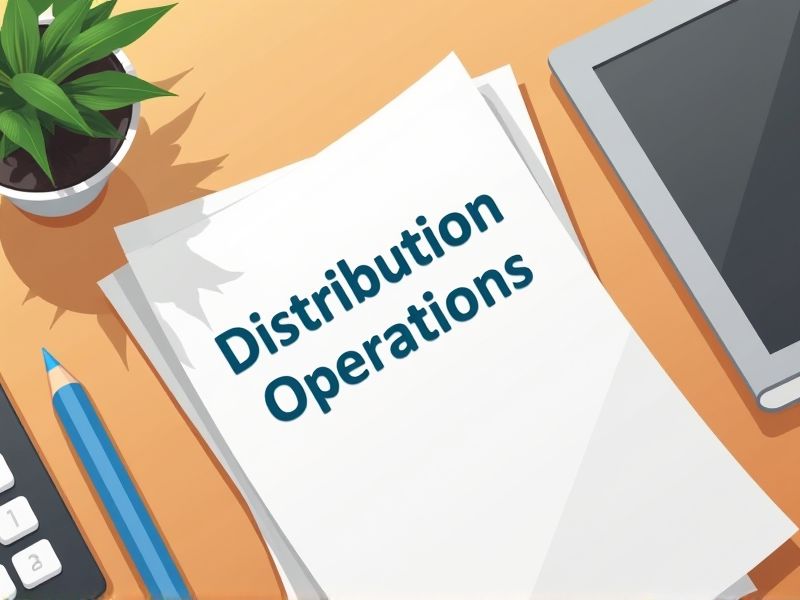
Distribution Operations Engineers are responsible for maintaining and optimizing the flow of electrical energy across power grids. Certifications ensure they possess the technical expertise to handle complex distribution systems safely and efficiently. These credentials validate their understanding of industry standards, regulatory requirements, and emerging technologies. Key certifications you may consider for a Distribution Operations Engineer include those focused on system analysis, safety protocols, and grid management.
Professional Engineer (PE) in Electrical Engineering
A Professional Engineer (PE) in Electrical Engineering is needed for a Distribution Operations Engineer to ensure compliance with regulatory standards, minimizing the risk of penalties for the organization. The PE's expertise contributes to system reliability and safety, reducing the likelihood of power outages and accidents. Their credential signifies advanced problem-solving skills, essential for designing efficient and innovative distribution systems. A PE can also provide leadership and mentorship to junior engineers, enhancing the overall capability of the engineering team.
Certified Energy Manager (CEM)
A Certified Energy Manager provides specialized knowledge crucial for optimizing energy efficiency in distribution operations, which can lead to significant cost savings. Understanding energy consumption patterns allows the engineer to implement more effective energy management strategies, enhancing operational sustainability. Compliance with increasingly strict energy regulations often requires the expertise of a CEM to ensure adherence and avoid potential penalties. With the growing emphasis on reducing carbon footprints, a CEM's skills are vital in guiding organizations toward environmentally responsible distribution practices.
NERC Critical Infrastructure Protection (CIP) Certification
NERC Critical Infrastructure Protection (CIP) Certification is essential for Distribution Operations Engineers because it ensures adherence to strict cybersecurity standards vital for safeguarding the electrical grid. Compliance with NERC CIP helps prevent cyberattacks that could significantly disrupt electricity distribution, which impacts critical infrastructure. This certification equips engineers with the knowledge to implement and maintain secure network operations, directly affecting grid reliability and operational efficiency. Regulatory requirements necessitate engineers to possess this certification, reducing non-compliance risks that might lead to substantial penalties for utility companies.
IEEE Power & Energy Society (PES) Membership/Certification
Holding an IEEE Power & Energy Society (PES) Membership/Certification can enhance credibility and recognition within the engineering community, signaling adherence to industry standards. Access to a vast array of technical resources and research through PES enables a Distribution Operations Engineer to stay updated on cutting-edge technologies and methodologies. Networking opportunities through PES events allow engineers to connect with industry leaders and peers, aiding in professional development and career advancement. The certification often aligns with industry requirements, potentially increasing job prospects and advancement within the power and energy sector.
Project Management Professional (PMP)
Acquiring a PMP certification equips a Distribution Operations Engineer with essential project management skills, improving their ability to handle complex logistics. It enhances their proficiency in time management and resource allocation, leading to more efficient operations. Having PMP credentials can increase their credibility and trust among stakeholders, facilitating smoother collaboration. The structured approach learned through PMP methodologies helps in reducing project risks, ensuring more reliable distribution outcomes.
ITIL Foundation Certification
ITIL Foundation Certification provides Distribution Operations Engineers with a structured framework to manage IT services effectively, aligning them closely with business objectives. A certified engineer gains insights into service management best practices, enhancing their ability to ensure operational reliability and efficiency in distribution processes. With the certification, there is a reduction in downtime and improved response times by equipping engineers with skills in incident and problem management. Employers often prefer certified professionals, as it indicates a commitment to leveraging industry standards for optimal service delivery.
Six Sigma Green Belt Certification
Six Sigma Green Belt Certification equips Distribution Operations Engineers with the tools to identify inefficiencies in processes, improving operational flow. This training enhances problem-solving skills, fostering a structured approach to quality improvement. With the certification, engineers are better prepared to reduce waste and increase productivity within the distribution sector. Earning this credential also increases credibility and can lead to career advancement opportunities through demonstrated expertise in process optimization.
Electrical Distribution Professional Certification (EDPC)
The EDPC provides a structured framework that enhances the technical knowledge and skills required in complex distribution operations. Obtaining this certification assures employers of the engineer's ability to adhere to industry standards and improve system reliability. As technological advancements reshape energy distribution, certified professionals are better equipped to integrate these innovations. Achieving EDPC can lead to increased career opportunities and professional recognition in the competitive field of electrical distribution.
Certified Renewable Energy Professional (CREP)
The role of a Certified Renewable Energy Professional (CREP) is crucial for a Distribution Operations Engineer because they provide expertise in integrating renewable energy sources into existing power grids, which can enhance energy reliability. CREP certification equips professionals with the knowledge to assess and implement energy efficiency measures, leading to cost savings and reduced environmental impact. As renewable energy sources become more prevalent, having a CREP ensures adherence to regulatory standards and best practices, reducing the risk of compliance issues. CREP professionals bring valuable insights into optimizing system performance and innovating solutions to meet future energy demands.
Data Analytics Professional Certification (e.g., Google Data Analytics Certificate)
A Data Analytics Professional Certification equips a Distribution Operations Engineer with the ability to interpret complex data patterns, facilitating better decision-making and process optimization within distribution systems. In distribution operations, efficiency and cost-effectiveness are paramount, and possessing advanced analytical skills enhances the engineer's capability to identify bottlenecks and operational inefficiencies. Data-driven insights lead to improved predictive maintenance schedules, thereby reducing downtime and extending the lifespan of distribution equipment. The certification also enhances the engineer's competency in leveraging statistical tools and methodologies, which are crucial for designing effective distribution strategies and improving overall system performance.
Summary
With new certifications, you can enhance your professional skill set as a Distribution Operations Engineer. This often leads to increased job performance and efficiency. Your ability to handle complex systems and technologies improves, making you a valuable asset to your team. Consequently, certification can open up opportunities for career advancement and salary increases.
